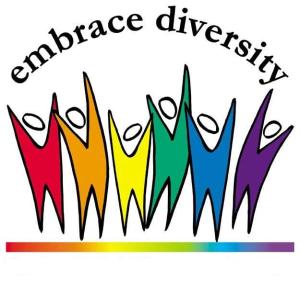
When she was little, her grandfather told her about the cloak of invisibility. A little girl wanted to get inside a palace, but as she was poor and never could get inside, she could only dream. One day a fairy appeared, holding a blood-red cloak, sparkling in the sunlight. She carefully draped it around the girls shoulders, and left. Three days later, when she by coincidence looked into a mirror in a hotel where she went in to wash her face, she startled when she could`t see herself in the mirror. In shock her cloak fell off her with a heavy thud, and she magically reappeared. Picking it up and taking it on again, she vanished once more.
The following days, she experimented with her cloak, and not only could she not see herself in the mirror when she put it on, no one else could either. With a thumping heart, she went to the palace. The cloak firmly around her slim body, walking with shaky legs, she stepped inside her palace of her dreams. Not only did her eyes rest upon beauty she never knew existed, but she also saw the prince himself. He was so handsome, that her cloak almost fell off her again, but she managed to avoid the disaster by clutching it tight. Three days later, she ventured into the palace again, and saw the prince sitting in the library, reading a book with tears streaming on his beautiful face. Without thought, she ran over to him, always eager to help. When she ran, her cloak made her trip and she fell, exposing the body she always tried to hide. The prince looked up from his book in shock from the loud thud, and the sudden appearance of a girl right in front of him. Their eyes met, and if there is such a thing as faith, this was it.
Three years later, they were happily married and had a girl, a little princess. The girl with the cloak, was never invisible again.
Her grandfather looked at his grandchild and smiled. She sat there, in rapt attention, dreams floating in her eyes. She looked at in him in awe and asked with a tender voice:
«Can I have a cloak like that?» He chuckled, stroking her hair and thinking he would give her anything, if he only could. On her 4th birthday a present was under a bed together with a little fairy doll on top of it. Eagerly she ripped off the paper, exposing a beautiful red cloak with glittering beads all over it. Before her parents, who always disapproved of her no matter what she did, could come in and realize that her grandfather had indulged in her once again, she hid it in the closet where she herself hid when her father roared in anger.
Later, she tried it on. She hid her bruises, misery and pain, and felt safe underneath the soft satin cloak. When she heard footsteps outside her room, she did not shiver like usual. She only put the cloak tighter around her, hiding in her closet, murmuring that everything would be okay. Like magic, her father left her alone, though he probably knew she sat there, and could have dragged her out to the bed like he sometimes did.
She had always felt invisible, even without a cloak, but this time it felt good. When she recalled how much fear and horror she endured in her life, as an adult, she knew that she finally could change her future. Her cloak was always with her, no matter how dirty and ragged it became. Bit by bit, she felt safe enough to show small pieces of her invisible self to people who loved her. She managed to hide when someone untrustworthy came into her life, and slowly the bruises that had marked her body for so many years, faded. Sometimes, in the darkness before the dawn, she still put the cloak on, and little by little she managed to show herself to the world. She was like a broken mirror, but slowly the pieces came together again, and finally, one day, she was able to look at herself fully. Her husband, a kind man, helped her and found many of the broken pieces. Handling them with care, he fixed the mirror together with her, until they both could look into each others eyes without ever having to turn their gaze away from what they both hid inside.
At their third anniversary, he hid a present under her bed, with a little fairy on top. Her eyes filled with tears, as she saw the soft present underneath it. With shaking hands, she unwrapped it. A new cloak, even softer than the first one, appeared. Her tears flowed freely now, and when her husband came in with a birthday breakfast on a silver tray, he came over and held her hand. Carefully, he draped the soft silk around her shoulders. To her amazement, he wore a black cloak himself, shining in the sunlight from the new day. Together, they walked over to the mirror.
Her tears stopped flowing, and in that moment, life was good.
This post was reblogged from my blog: Mirrorgirlblog



 An anchor woman holds her microphone steady as she reports live from ‘We have the power’ , an old mental institution where the walls should have been painted decades ago. Her voice intermingle with twenty other reporters looking seriously into the camera, pointing occasionally to the building behind them. The anchor woman turns her voice dramatically down when she arrives at the conclusion.
An anchor woman holds her microphone steady as she reports live from ‘We have the power’ , an old mental institution where the walls should have been painted decades ago. Her voice intermingle with twenty other reporters looking seriously into the camera, pointing occasionally to the building behind them. The anchor woman turns her voice dramatically down when she arrives at the conclusion.












